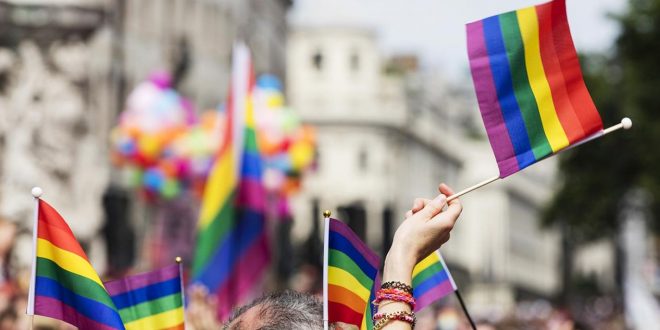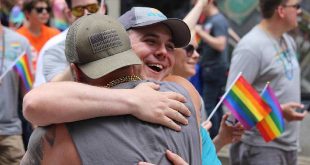A Cornerstone of LGBT Identity or an Obstacle to Equality?
A blog post from 2009 on “Sex, Gender and US society” carefully delineated some of the gender roles that are known well to certain circles within the gay community. Words such as “butch”, “bear”, “femme”, or “twink” may not be familiar to LGBT individuals that are not as socially active with other LGBT folks, but they have been used to describe gender roles in lesbian and gay relationships for the majority of modern times. There are a few things that anyone new to this particular subculture should be aware of. For one, gender roles do not refer to cross-dressing, although the individual may express themselves by adopting hyper-masculine or hyper-feminine dress. The use of “drag” or deliberate cross-dressing is actually more common in gender queers, who may not even participate in relationships with individuals that express gender differently. Secondly, these terms sound derogatory because to some degree they are.
As the author Logan writes, many of these terms are used by other members of the LGBT community to marginalize the people that they describe, or as a type of “intra-homophobia”. The adoption of a gender role in a homosexual relationship automatically leads to the assumption that one partner will play a dominant role and the other will be more submissive. Depending on the maturity of the homosexual couple, this formula can work very well for a relationship. Like all human relationships of course, it is not always unhealthy when one individual is more outgoing, motivated, judgmental, self-assured, etc… as long as the other person still has a backbone. The real issue arises from the perspective of an outsider. It is more of a challenge for the partner with the feminine role to garner respect from other people in general. This somewhat subversive form of gay discrimination is quite off-putting, but so far there is no statistical evidence indicating that it contributes in any way to violence against LGBT individuals.
Domestic violence in homosexual relationships is not any more common than it is in heterosexual relationships, in spite of some evidence that crimes that do not involve male-on-female violence are taken less seriously by the media. The social burden that gender roles have on LGBT individuals that assume them is probably well within the individual’s power to handle. Gender roles are a form of self-expression, not entirely unlike cross-dressing is for the gender queer individual but perhaps even more personal. For some LGBT individuals the role they use in relationships may be one that expresses their true personality. Even where this is not the case gender roles in homosexual relationships can be a way of balancing needs and giving the relationship more stability. While it cannot really be told how much gender roles influence the equality of LGBT individuals in society it is not outrageous to question whether feminine stereotypes are an obstacle for LGBTs.
The issues faced in the Medical Field by male nurses and female doctors is an excellent example of why the LGBT community should be mindful of the impact of gender stereotypes. Traditionally these two professions have been stereotypically “male” or “female”, and students that don’t heed the status quo are often accused of being gay or perverse. The problem is more marked in women pursing medical degrees, and the Journal of Women’s Health has recently published a review on the interpersonal impact that gender stereotyping has in modern culture on female medical students. The most immediate way to improve the status of LGBT individuals is to improve intra-personal perspectives and close interpersonal perspectives, and there is no better way to do that than to promote personal development. If you think that a gender role is part of who you are as an LGBT individual then it should be your own quirky, genuine gender role that you express everywhere. “Feminine” personalities and “Masculine” personalities are merely constructs that our culture has forced on us. We do not have to accept them as who we are unless they fit. The social status of all human beings will benefit when we dismiss our use of roles that are designed to debilitate and marginalize individuals, but we need not dispose of the antagonizing qualities that we crafted these roles with. Those are intrinsically human, and when they are intrinsically who we are, that’s okay!
Dr. M. Mirza – lgbt health wellness .com – 2014
 Lesbian, Gay, Bisexual, Transgender & Intersex News Lesbian News, Gay News, Bisexual News, Transgender News, Intersex News, LGBTI News
Lesbian, Gay, Bisexual, Transgender & Intersex News Lesbian News, Gay News, Bisexual News, Transgender News, Intersex News, LGBTI News




